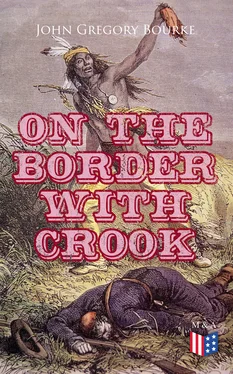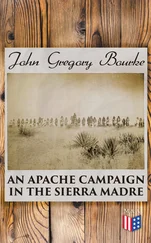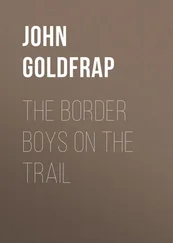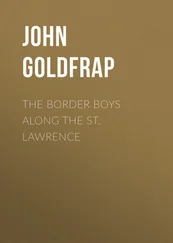When this party reached the post of Camp Grant they could easily have demanded the first prize at a tramp show; they were not clothed in rags—they were not clothed in anything. When they escaped from the wagon-train they were wearing nothing but underclothing, on account of the excessive heat of the day; when they got into Camp Grant most of the underwear had disappeared, torn off by the cactus, palo verde, mesquite, mescal, and other thorny vegetation run against in their flight. Their feet evidenced the rough, stony nature of the ground over which they had tramped and bumped, and thorns stuck in their legs, feet, and arms. There was not much done for these poor wretches, all of whom seemed to be gentlemen of education and refinement. We shared the misery of the post with them, which was about all we could pretend to do. Vacant rooms were found for them in the Israel ranch, and there they stayed for a few days, just long enough for every one to catch the fever.
Before we start out in pursuit of the attacking Apaches, let me relate the story told all over southern Arizona about the spot where this Gatchell-Curtis train had been surprised. It was known as the scene of the ambuscade of the Miller-Tappan detail, and frontier tale-tellers used to while away the sultry hours immediately after the setting of the sun in relating how the soldiers under Carroll had been ambushed and scattered by the onslaught of the Apaches, their commander, Lieutenant Carroll, killed at the first fire. One of the survivors became separated from his comrades in their headlong flight into Camp Grant. What became of him was never fully known, but he had been seen to fall wounded in the head or face, and the soldiers and Mexicans seemed to be of but one opinion as to the direction in which he had strayed; so there was no difficulty in getting a band of expert trailers to go out with the troops from the camp, and after burying the dead, make search for the missing man. His foot-prints were plainly discernible for quite a distance in the hard sand and gravel, until they led to a spring or “water-hole,” where one could plainly read the “sign” that the wounded man had stopped, knelt down, drunk, washed his wound, torn off a small piece of his blouse, perhaps as a bandage, and written his name on a rock in his own blood.
So far, so good; the Mexicans who had been in the searching party did not object to telling that much, but anything beyond was told by a shrug of the shoulders and a “Quien sabe?”
One day it happened that José Maria was in a communicative mood, and I induced him to relate what he knew. His story amounted to just this: After leaving the “water-hole,” the wounded man had wandered aimlessly in different directions, and soon began to stagger from bush to bush; his strength was nearly gone, and with frequency he had taken a seat on the hard gravel under such shade as the mesquites afforded.
After a while other tracks came in on the trail alongside of those of the man—they were the tracks of an enormous mountain lion! The beast had run up and down along the trail for a short distance, and then bounded on in the direction taken by the wanderer. The last few bounds measured twenty-two feet, and then there were signs of a struggle, and of SOMETHING having been dragged off through the chapparal and over the rocks, and that was all.
Our men were ready for the scout, and so were those of the detachment of “K” Troop, First Cavalry, who were to form part of our expedition—a gallant troop and a fine regiment.
The quarters were all in bustle and confusion, and even at their best would have looked primitive and uncouth. They were made of unhewn logs set upright into the ground and chinked with mud, and roofed in the same early English style, with the addition of a ceiling of old pieces of canvas to keep the centipedes from dropping down.
On the walls were a couple of banjos, and there were intimations that the service of the troop had been of a decidedly active nature, in the spoils of Apache villages clustered against the Cottonwood saplings. There were lances with tips of obsidian, and others armed with the blades of old cavalry sabres; quivers of coyote and mountain lion skin filled with arrows, said by the Mexican guides to be poisonous; and other relics of aboriginal ownership in raw-hide playing-cards, shields, and one or two of the century-plant fiddles.
The gloom of the long sleeping room was relieved by the bright colors of a few Navajo blankets, and there hung from the rafters large earthenware jars, called “ollas,” the manufacture of the peaceful Papagoes, in which gallons of water cooled by rapid evaporation.
There were no tin wash-basins, but a good substitute was found in the pretty Apache baskets, woven so tightly of grasses and roots that water could no more leak through them than it could through the better sort of the Navajo blankets. A half a dozen, maybe more, of the newspaper illustrations and cartoons of the day were pasted in spots where they would be most effective, and over in the coolest corner was the wicker cage of a pet mocking-bird. There were other pets by this time in the Apache children captured in the skirmishes already had with the natives. The two oldest of the lot—“Sunday” and “Dandy Jim”—were never given any dinner until they had each first shot an arrow into the neck of an olive-bottle inserted into one of the adobe walls of the quartermaster’s corral. The ease with which these youngsters not over nine or ten years old did this used to surprise me, but it seemed to make them regard the Americans as a very peculiar people for demanding such a slight task.
Out on the trail again, down the San Pedro and over the Gila, but keeping well to the west until we neared the Mineral Creek country; then up across the lofty Pinal Range, on whose summits the cool breezes were fragrant with the balsamic odors of the tall, straight pines, over into the beautiful little nook known as Mason’s Valley, in which there was refreshing grass for the animals and a trickling stream of pure water to slake their thirst. Then back to the eastward until we struck the waters of the Pinal Creek, and had followed it down to the “Wheat Fields,” and still no signs of Indians. The rainy season had set in, and every track was obliterated almost as soon as made.
One night we bivouacked at a spot not far from where the mining town of Globe now stands, and at a ledge of rocks which run across the valley of Pinal Creek, but part for a few feet to permit the feeble current to flow through. The sky was comparatively clear, a few clouds only flitting across the zenith. Back of us, hanging like a shroud over the tops of the Pinal, were heavy, black masses, from whose pendulous edges flashed the lightning, and from whose cavernous depths roared and growled the thunder.
“That looks very much like a cloud-burst coming,” said Cushing; “better be on the safe side, anyhow.” So he gave orders to move all the bedding and all the supplies of the pack-train higher up the side of the hill. The latter part of the order was obeyed first, and almost if not quite all the ammunition, bacon, coffee, and sugar had been carried out of reach of possible danger, and most of the blankets and carbines had been shifted—everything, in fact, but the hard tack—when we noticed that the volume of water in the creek had unaccountably increased, and the next moment came the warning cry: “Look out! Here she comes!” A solid wall of water—I do not care to say how many feet high—was rushing down the cañon, sweeping all before it, and crushing a path for itself over the line along which our blankets had been spread so short a time previously.
The water didn’t make very much noise. There was no sound but a SISH! That meant more than my pen can say. All that we had carried to the higher slopes of the cañon side was saved. All that we had not been able to move was swept away, but there was nothing of value to any one excepting a mule belonging to one of the guides, which was drowned, and a lot of harness or rigging from the pack-train, which, with the hard tack, found a watery grave.
Читать дальше












